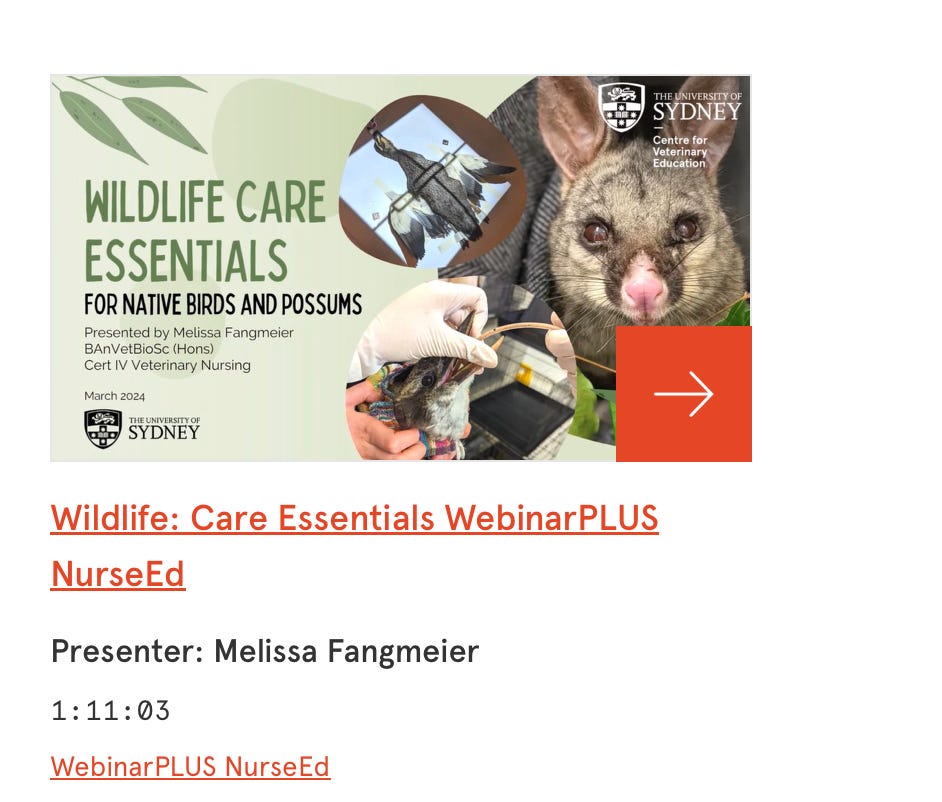Mastering Your Vet Nurse CV: Top Tips for a Winning Application
Helping you through your Veterinary journey in Australia
What to do to increase your chances of getting that phone call
Today I want to talk about the things that you can do to get a job interview and ultimately to land a job within the vet industry in Australia.
I get a lot of messages about this on social media and is no secret that finding your FIRST job within your profession in Australia can b extremely difficult.
If you landed a job within months of your arrival into Australia, consider yourself “Lucky”.
Story time!
I remember an Argentinian Vet, she had been in Australia for a few months and she sent me a message asking for a volunteering position. I was able to find a non paid job at my previous workplace. She volunteered for a few months once a week and eventually she was able to get a paid Vet nurse position.
But she was not that happy with that job, that Vet clinic had no support towards new staff and the working environment can get quite toxic, so she was always looking for other jobs. I remember saying to her “appreciate what you have NOW, you still have a broken English, no experience and you have been in Australia for only a few months” barely anyone can land a job within their profession this fast. So focus on the positives, learn, master your English, then you can think about getting a new job.
She used to say to me: is it actually that hard to get a vet nurse job in Australia? and I was like: mate you have no idea how hard it is.
Let’s dive into what to include in a winning CV (resume) and how to prepare for an interview.
Resume Tips
Read carefully the job description and Customize Your Resume for the Role: Tailoring your resume to each position is a must and yes it will be time consuming but it is so worth it. For example:
Let’s say I am looking for a vet nurse job and I would like to apply for this position:
Before sending the CV that I send to every other work place, I am going to take note of the part that says: ABOUT YOU:
Thrive in a fast-paced environment
Ability to work both independently and collaboratively
Organised and able to prioritise workload
Proactive, forward thinking and adaptable to changing situations
Meticulous attention to detail
Cert III or Cert IV qualification not required (however working alongside our team will fast track your experience if you are looking to follow this path)
Friendly and cooperative attitude is a must!
I would re phrase the above in my own words and MAKE SURE I write it on my CV. most resumes will have either of these: about me OR profile, clinical skills.
Showcase Key Achievements: Use bullet points to highlight accomplishments and quantify them where possible. You can write your achievements and skills when writing the employment history, For example:
Sydney Veterinary Emergency and Specialists:
Emergency Vet nurse
Evaluating traumatic injuries, injuries,triaging patients in waiting room, performing clinical examination, basic procedures like intravenous catheter placement, SC and IM injections, running diagnostic tests with IDEXX and HESKA machines and monitoring hospitalised patients from all the wards including surgery and emergency.
Focus on Skills and Qualifications: Place a “Skills” section near the top, highlighting specific capabilities the employer is looking for.
Once again, I would carefully check the add and see whether they are looking for any particular skills. Let’s have a looks at this vet nurse add:
Having read the above, I would include in my CV things like: placing IV catcher, blood collections, experience using IDEXX machines, routine scale and polish , aiding vets in correct positioning for radiographs and taking or radiographs, attention to detail for husbandry duties, monitoring general anaesthesia and so for.
List Relevant Certifications and Licenses: If you’re in a regulated field (like healthcare or trades), mention any certifications or licenses required in Australia.
If you don’t have any Australia qualifications, please be proactive and attend to conferences and do short courses WITHIN AUSTRALIA,even if it’s related to vet nursing. This will help you heaps and will increase your chances of getting that phone call
You can pay not expensive memberships to access webinars AND once completed, make sure you add the webinar to your education.
Let’s have a look at a few ONLINE courses that will upskill your Australian CV and that are NOT expensive, this vet nurse webinar in the CVE:
CPR Basic and Advanced Life Support Courses
Here are some of the certificates I did in Australia to improve my chances of landing a vet nurse job:








